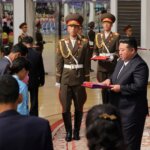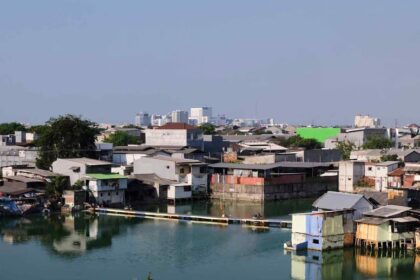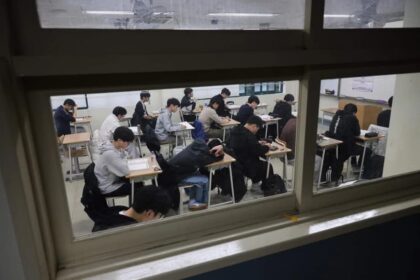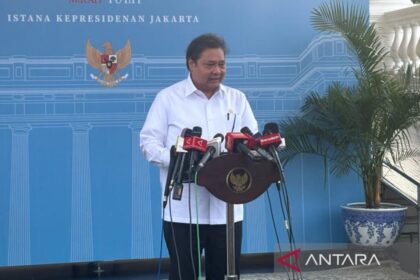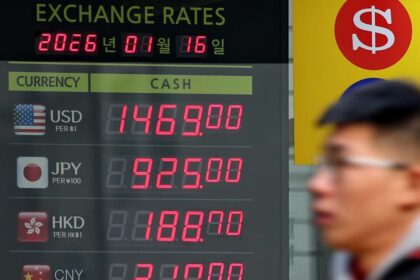Hong Kong’s Bid to Become a Global Gold Hub Faces a Talent Crunch
Hong Kong, long celebrated as a gateway between East and West, is striving to reclaim its status as a global gold trading powerhouse. Backed by Beijing’s ambitions and a surge in gold prices, the city is investing in infrastructure, regulatory reforms, and international partnerships to attract bullion traders and investors. Yet, a critical obstacle threatens to derail these plans: a severe shortage of skilled professionals in precious metals trading.
- Hong Kong’s Bid to Become a Global Gold Hub Faces a Talent Crunch
- Why Is There a Talent Shortage in Hong Kong’s Gold Trading Sector?
- Beijing’s Ambitions and Hong Kong’s Strategic Role
- How Is Hong Kong Trying to Attract Global Talent?
- Infrastructure and Market Developments: Building a Gold Trading Ecosystem
- Competition from Singapore and Other Financial Centers
- What’s at Stake for Hong Kong’s Financial Future?
- Can Hong Kong Close the Gap? Lessons from Other Sectors
- In Summary
Despite its strategic location, robust financial infrastructure, and proximity to mainland China—the world’s largest gold consumer—Hong Kong is struggling to fill key roles in gold trading. This talent gap is not only slowing the city’s progress but also exposing it to fierce competition from rival financial centers like Singapore and London.
Why Is There a Talent Shortage in Hong Kong’s Gold Trading Sector?
The shortage of skilled gold traders in Hong Kong is both acute and persistent. Earlier this year, Bank of China (Hong Kong) posted a job advertisement for a precious metals trader fluent in English and Mandarin, with at least five years of experience. Eight months later, the position remains unfilled—a telling sign of the challenges facing the sector.
Recruiters and industry insiders point to several factors behind the scarcity:
- Specialized Skill Set: Gold trading, especially in physical bullion, requires expertise in procurement, logistics, risk management, and compliance. Bilingual proficiency and experience at global banks are often prerequisites.
- Limited Local Talent Pool: Hong Kong’s education and training systems have not kept pace with the evolving demands of commodities trading. Few locals possess the necessary experience, forcing banks to look abroad.
- Salary and Relocation Challenges: International banks and trading houses often offer more attractive compensation and relocation packages, making it difficult for Hong Kong-based employers to compete for top talent.
- Cultural and Regulatory Barriers: State-owned Chinese banks, which are leading the gold trading push, have unique internal cultures and strict rules on overseas postings. These include assignment caps, resignation restrictions, and repayment of allowances, which can deter candidates.
As a result, banks are increasingly sourcing candidates from Singapore, London, mainland China, and even Dubai. The competition for experienced traders is intense, with poaching between banks becoming commonplace.
Industry Voices: The Impact of the Talent Gap
Industry leaders warn that without targeted efforts to build a robust talent pipeline, Hong Kong risks losing ground to rival financial centers. One LinkedIn post from a commodities market professional summarized the sentiment:
“Despite its strategic location and infrastructure, the city is struggling to attract and retain professionals with the expertise needed to support large-scale commodities trading. Without targeted efforts to build a talent pipeline through education, incentives, and international recruitment, Hong Kong risks losing ground to rival financial centers.”
The shortage is particularly acute in areas like risk management, compliance, and digital infrastructure—skills that are critical to modern gold trading operations.
Beijing’s Ambitions and Hong Kong’s Strategic Role
China is the world’s largest supplier and buyer of gold, and Beijing is eager to exert greater influence over global bullion pricing. As part of this strategy, the Shanghai Gold Exchange has introduced new contracts tailored to international investors and established a bullion vault in Hong Kong. The city’s Chief Executive, John Lee, has publicly committed to reviving Hong Kong’s status as a gold trading center.
Authorities have set up a committee to expand the sector and are planning measures to support physical deliveries, further integrating Hong Kong into the global gold supply chain. These moves are designed to attract more trading houses, family offices, and private companies, such as Swiss trader MKS PAMP, which is considering setting up its Asia-Pacific headquarters in Hong Kong and even a refinery in the Greater Bay Area.
However, these ambitions hinge on the city’s ability to attract and retain the right talent—a challenge that is proving more difficult than anticipated.
How Is Hong Kong Trying to Attract Global Talent?
Recognizing the urgent need for skilled professionals, the Hong Kong government has launched a series of initiatives to attract global talent. The centerpiece of this effort is the updated Talent List, which now covers 60 in-demand professions, including commodities trading and financial services. This list is designed to facilitate the immigration of foreign professionals through streamlined visa schemes.
Key Immigration Schemes for Skilled Workers
- Quality Migrant Admission Scheme (QMAS): Allows highly skilled or talented individuals to settle in Hong Kong without a prior job offer. Applicants are assessed based on a points system that considers age, qualifications, language proficiency, work experience, and more.
- General Employment Policy (GEP): Enables employers to hire foreign professionals for positions where local talent is lacking, with fewer administrative hurdles for roles on the Talent List.
- Admission Scheme for Mainland Talents and Professionals (ASMTP): Specifically targets skilled workers from mainland China.
Recent updates to these schemes have further simplified the process. Employers hiring for roles on the Talent List no longer need to prove the absence of suitable local candidates, reducing delays and red tape. The QMAS has also been enhanced with clearer scoring criteria and a streamlined application process.
Additionally, the government has expanded the list of eligible universities under the Top Talent Pass Scheme (TTPS), making it easier for graduates from top institutions worldwide to work in Hong Kong. Full-time foreign undergraduate students are now temporarily exempt from restrictions on part-time work, increasing their incentive to stay after graduation.
Broader Talent Strategy: Beyond Gold Trading
Hong Kong’s efforts to attract global talent extend beyond the gold sector. The government’s “eight centres” strategy aims to position the city as a leader in trade, finance, innovation and technology, cultural exchange, intellectual property, aviation, shipping, and legal services. The Talent List and associated immigration policies are central to this vision, with the goal of addressing an anticipated shortage of more than 180,000 workers in key sectors by 2028.
According to a recent government report, recruiting global talent is essential for Hong Kong’s socio-economic development and competitiveness. The city is proactively adjusting its recruitment strategies to meet the demands of fast-emerging industries, including fintech, AI, and digital infrastructure.
Infrastructure and Market Developments: Building a Gold Trading Ecosystem
While talent is the most pressing issue, Hong Kong is also investing heavily in infrastructure to support its gold trading ambitions. The London Metal Exchange (LME) has approved Hong Kong as a warehouse delivery point, enhancing access to mainland China and integrating the city into the global metals trading network. LME warehouses in Hong Kong will be able to store all six of the main metals traded on the exchange, despite higher storage costs compared to other locations.
Arthur Fan, head of Asia-Pacific at brokerage Marex, noted that building warehouses in Hong Kong will likely require additional government support due to high land costs. However, he believes the move will be welcomed by metals buyers in China, given the city’s proximity and logistical advantages.
These infrastructure upgrades are complemented by policy measures outlined in the Chief Executive’s 2024 Policy Address, which emphasizes the development of gold trading, expansion of Bond Connect, and support for supply chain and logistics infrastructure. The government is also promoting digital transformation and AI adoption across sectors, aiming to make Hong Kong an international hub for high-calibre talent.
Competition from Singapore and Other Financial Centers
Hong Kong’s gold trading ambitions are unfolding against a backdrop of intense regional competition. Singapore, in particular, has emerged as a formidable rival, offering new gold contracts, a business-friendly regulatory environment, and a deep pool of financial talent. Many banks and trading houses are sourcing candidates from Singapore, where the talent pool is larger and compensation packages are often more competitive.
Singapore’s success is partly due to its proactive approach to talent development and internationalization. The story of Laurent Junique, a French entrepreneur who built a successful business in Singapore despite initial challenges, illustrates the city-state’s openness to global talent and innovation. Singapore’s ability to attract and retain skilled professionals has helped it weather economic crises and maintain its status as a leading financial center.
Hong Kong, by contrast, faces the dual challenge of attracting international talent while also retaining local professionals, many of whom are lured by opportunities abroad. The city’s high cost of living, political uncertainties, and competition from other hubs add to the complexity.
What’s at Stake for Hong Kong’s Financial Future?
The stakes are high. Gold remains a popular asset among investors, especially in times of economic uncertainty and low interest rates. Recent months have seen gold prices surge to record highs, driven by a weaker US dollar and expectations of Federal Reserve rate cuts. This has intensified demand for skilled traders and increased the urgency for Hong Kong to address its talent gap.
Without a sufficient pool of experienced professionals, Hong Kong risks missing out on a lucrative opportunity to capture a larger share of the global gold market. The city’s ambitions to become a global gold hub—and by extension, to reinforce its status as an international financial center—depend on its ability to overcome the current talent shortage.
Can Hong Kong Close the Gap? Lessons from Other Sectors
Hong Kong’s struggle to attract gold trading talent is not unique. Other high-skill sectors, such as artificial intelligence and technology, face similar challenges worldwide. In India, for example, the shortage of AI specialists has driven up salaries and forced companies to rethink their hiring strategies, focusing on quality over quantity and investing in upskilling initiatives.
For Hong Kong, the solution may lie in a combination of education, targeted incentives, and international recruitment. Building partnerships with universities, offering scholarships, and creating clear career pathways in commodities trading could help expand the local talent pool. At the same time, maintaining an open and welcoming environment for foreign professionals will be crucial.
Industry experts suggest that while attracting top-tier international talent may remain difficult, Chinese banks and local employers could focus on securing mid-tier professionals and investing in their development. Over time, this could help build a sustainable pipeline of skilled traders and support the growth of the precious metals business in Hong Kong.
In Summary
- Hong Kong’s ambition to become a global gold trading hub is being tested by a severe shortage of skilled professionals in precious metals trading.
- Banks and trading houses are struggling to fill key roles, with intense competition for talent from Singapore, London, and other financial centers.
- The Hong Kong government has expanded its Talent List and streamlined immigration policies to attract foreign professionals, but challenges remain.
- Infrastructure investments, such as LME-approved warehouses, are enhancing the city’s gold trading ecosystem.
- Competition from Singapore and high costs in Hong Kong add to the complexity of attracting and retaining talent.
- Addressing the talent gap will be critical for Hong Kong to realize its ambitions in gold trading and maintain its status as an international financial center.



